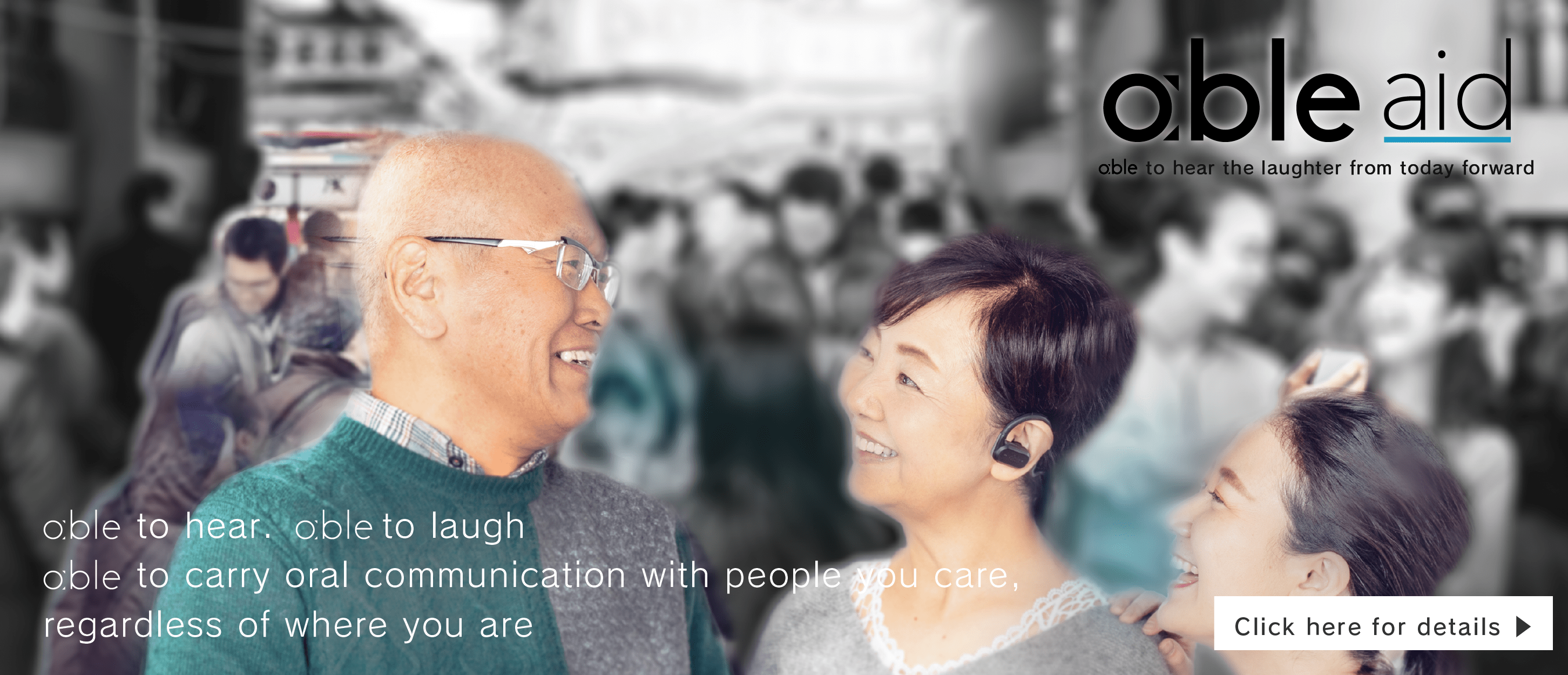
I can hear it as a sound, but I can't make sense of it.
Have you ever heard of APD?
- I can't hear everyone's conversation at the party I was looking forward to...
- I can't understand what they're saying on the phone...
- My own children don't follow the conversation...
These are just some of the minor symptoms that can occur in daily life, but if you have them, you may be suspected of having an auditory processing disorder (APD = Auditory Processing Disorder).

Author : Tsuyoshi Komoto
freecle Inc. / Exective Officer
Contents
I can't hear the words. So I can't follow the conversation.
In a nutshell, APD refers to a condition where a person can hear sounds but cannot make sense of them.
It is estimated that up to 2.4 million people, or about 2% of the Japanese population, are potentially affected by APD.
Normally, we humans recognize speech and understand it as words at the same time in a fraction of the time it takes to do so.
When these processes fail for some reason, speech recognition and information recognition are carried out separately, it causes the symptoms of "hearing sounds, but not understanding the meaning".
<The main symptoms of APD>
- I can hear sounds, but I can't hear the words.
- I can hear sounds, but I can't hear the words.
- In a noisy place, you don't know what they're talking about.
- I don't know what they're saying on the phone.
- More and more people are warning me, "Are you listening to me right?
- I can't understand what they're saying when more than one person is talking.
- I can't hear the customer's orders at work.
Unfortunately, there is no known medical solution to APD.
Although APD is defined as "a condition in which a person has no apparent hearing loss in the periphery but presents with hearing loss-like symptoms due to difficulties in central auditory processing", in practice it is difficult to distinguish between the two and has yet to be understood.
So, how do we deal with APD?
How do I deal with APD?
Patients with APD 'have a noticeable difficulty in hearing in the presence of sounds other than what they want to hear (noise/noise)'. The following are some examples of how to deal with the problem. From there, the following methods can be considered as an example
①:Choose a place where there is no noise
- Use a private room with a door separating the entrances and exits for dining and drinking.
- When talking to people, turn down the volume of the TV and lower the volume of the background music.
②:Eliminate or diminish the noise
- Use noise-canceling earphones to suppress noise.
(Some modern earphones have the ability to emphasize and suppress the human voice.)
③:Recognize with information other than voice.
- Text conversion/visual word recognition with a smartphone voice recognition app (Voice recognition technology has been evolving rapidly in recent years. Google Translate's literacy rate is particularly impressive!
④:Use of hearing aids and sound collectors
- Adjust your hearing to suit your hearing (the frequency range you want to hear).
Summary (Author's Thoughts)
The symptoms and risks of APD (Auditory Processing Disorder) are not yet recognized.
Inability to hear speech can increase stress, anxiety and loneliness, which can have a negative impact on your work and personal life.
If you are experiencing any of the above symptoms, there are some simple, inexpensive ways you can solve them with a little effort in your life.
I hope that this article will reach as many people as possible and help them to become aware of the risks of APD.
Source
Mildis Pediatrics Otolaryngology, "Auditory Processing Disorder (APD),"
NHK, "Life Information Blog - I Can Hear, But I Can't Hear"



